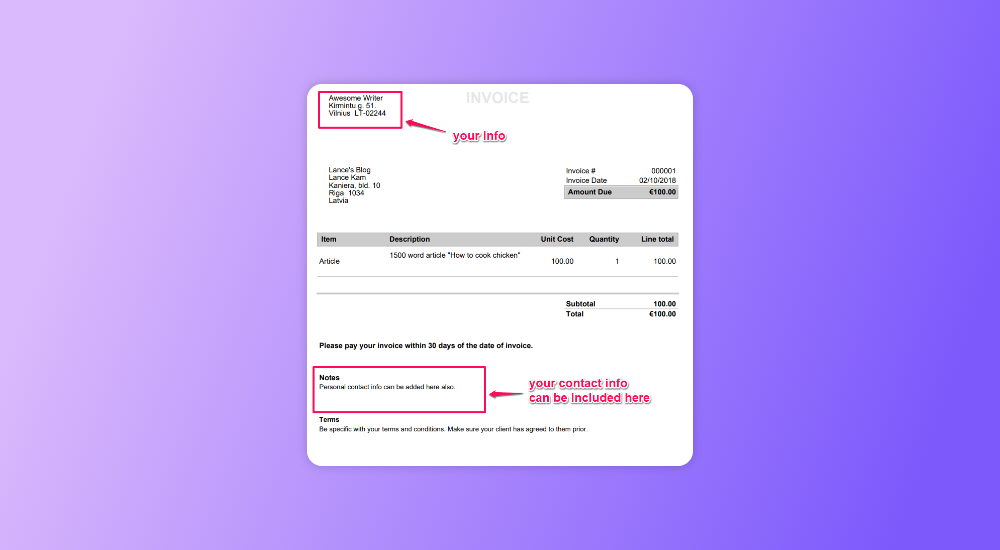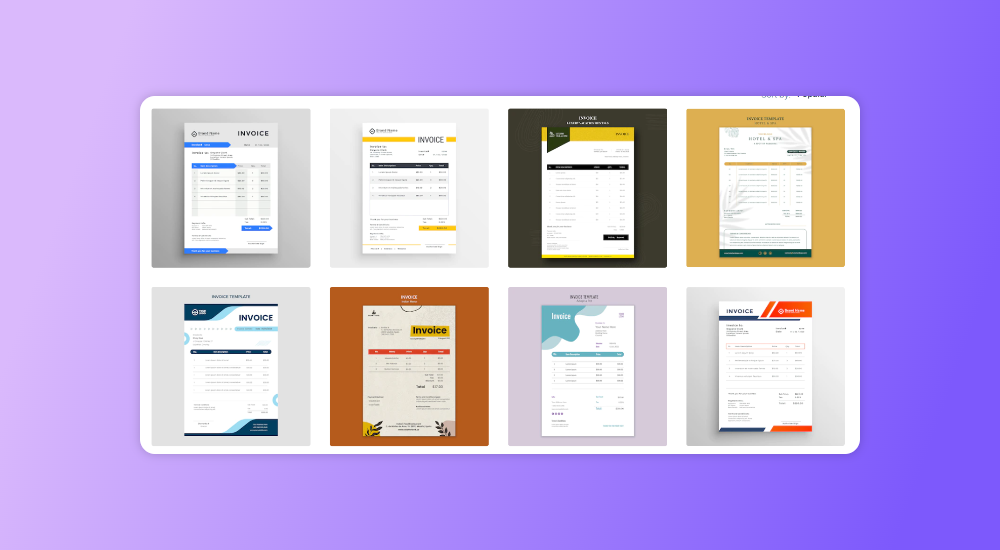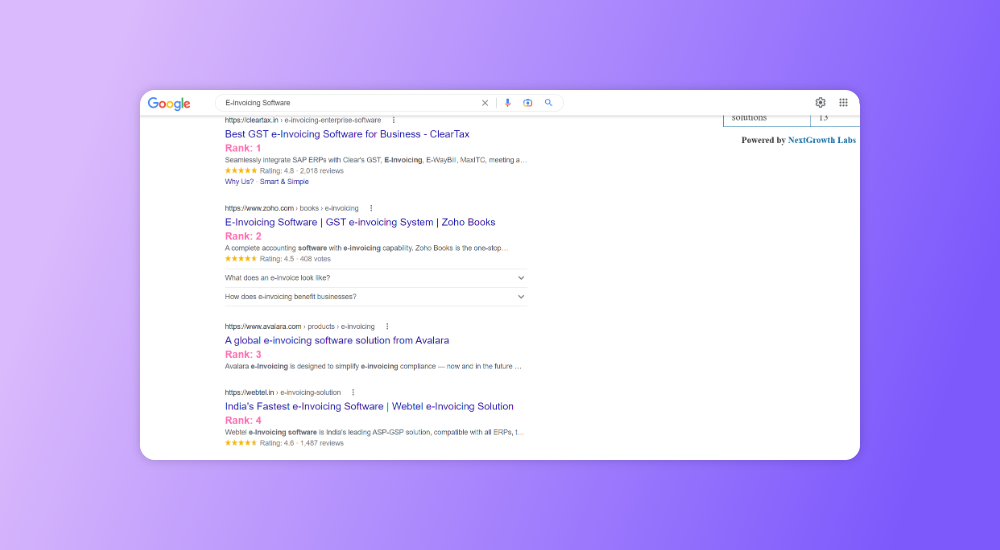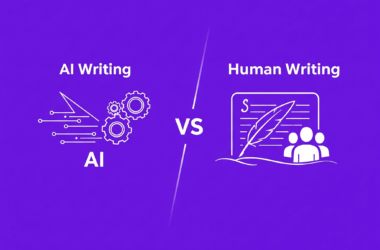Last updated on November 10th, 2022
When you’re a freelancer, simply doing your job well is not enough to keep you in business. Unlike a typical nine-to-five employee, you’re responsible for all business operations; not just the parts that you get paid for. You might often think about how to invoice for freelance work or what are the ways to do so.

This means that you also need to fill the role of accountant, or at the very least, ensure that your invoicing and payment system is under control. But what if you hate numbers or have never done your own accounts before?
Fortunately, you don’t have to be an accounting whizz to manage your invoices properly. These tips will get you started managing your money like a pro.
Best Tips For Invoicing As A Freelancer
Don’t Use Complex Invoice Templates
As long as your invoices look professional, your clients are not at all concerned with their appearance they don’t focus on freelance work invoices. In fact, flashy invoices can even make freelancers seem less professional. What’s more, invoices with too much visual detail can be confusing, thus increasing the risk of payment errors.

Be smart and remember that simple is always safest when it comes to invoicing. This applies as much to the information you include as the layout you use. Generally, your invoice should include the following information and nothing more:
- Your details and logo (including contact and billing information)
- Your client’s details (including those of the specific person responsible for your account)
- The invoice date
- The invoice number
- Fee/service breakdown
- Payment terms (including payment deadlines)
Invoice Immediately
As soon as you complete each project, generate the invoicing document and send it to your client. In doing so, you’ll eliminate any risk of forgetting about it once you move on to your next task. You will also save yourself the time and hassle of tracking down all the project details you need for your invoice at some point in the future. It will all be right there in front of you already.
Don’t Forget About the Tax
We have already discussed the pitfall of not planning for unforeseen expenses. One of the most common expenses that catch freelancers by surprise comes in the form of their taxes. It’s not that this expense can’t be foreseen, but that freelancers simply forget about it until tax season comes around.
Ensure that you can pay your taxes by setting that money aside as you earn it. Your invoices should include relevant taxes and specify the percentage of your fee that goes to tax. In addition to usually being required by law, this information is your reference for how much tax you’ll need to pay when the time comes. Invoicing for freelancers can be challenging however managing your tax can save a lot of your time.
Monitor All Your Invoices
As a freelancer, you need to know how much you’ve earned and how much you’re owed at any given time of the month. When you know this, you’re in a much better position to manage your cash flow and budget effectively.
An effective invoicing system will also lessen the likelihood of un-submitted, unpaid, or duplicate invoices and other errors.
Follow up on Invoices
Be sure to keep tabs on your outstanding invoices after you have submitted them to your clients. It’s a good idea to have a set wait time between payment due dates and send out reminder emails to clients with outstanding payments. Also, if you sent your invoice to a client quite far in advance of the payment deadline but have not heard back, it’s quite acceptable to send them a gentle reminder as the due date nears.
Your finances are also less likely to get messy if you have a standard approach to handling overdue payments. This must also be made clear to your clients from the start. Decide on and communicate your 30-, 60- and 90-day overdue payment protocols in advance. You can still be flexible and reasonable with your clients, but you now have a guideline by which to ensure they don’t take advantage of you.
Your clients also won’t have a valid argument if they’re turned over to lawyers or have to pay interest on their debts. They were warned.
Consider E-Invoicing Software
If all of this advice seems like a lot for one person to remember and apply correctly, then you’re not alone. Invoicing is such a common challenge among freelancers that an entire sub-industry has sprung up to address it.

E-invoicing or digital bookkeeping software tailored specifically to the needs of freelancers is now in abundant supply online. The best software of this kind is both intuitive and affordable and allows you to automate everything from time tracking to outstanding payment reminders.
If you’re not ready to spend money on invoicing software or don’t feel you need it yet, there are plenty of free accounting tools available online. You’ll find everything from an invoice template to an income statement template that you can download and customize for your business. This will make your invoicing process simpler, more efficient, and, above all, more professional.
Suggested Reading: How to Become a Freelance Content Writer in India
Plan For The Future
As a freelancer, you are not guaranteed an income. No matter how hard you work or how good you are at your job, there will probably be times when you aren’t paid enough to cover your expenses. Your biggest client may go out of business, you may have unforeseen expenses, or there may simply not be enough work to go around.
To ensure that these times are merely inconvenient rather than totally catastrophic, you need to budget for them. Run the numbers and calculate how much you’ll need to get through at least six months without an income. Then, even if it is just a little at a time, start building up that buffer. One way of doing this is by allocating a certain percentage of all invoices paid to this emergency fund.
Conclusion
To keep the lights on, you need to have a simple, speedy, and effective invoicing system in place. This will ensure that you spend as little time and energy as possible on your accounts, freeing you up to focus on your actual job.
We hope our list of invoicing dos and don’ts for freelancers has helped you toward that goal.





